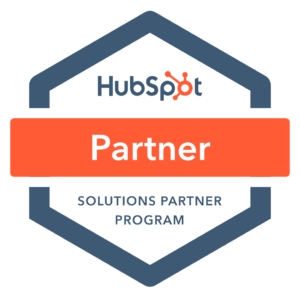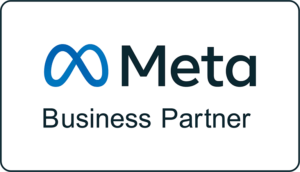Short answer? Yes. Google Ads works for businesses of all sizes, whether the goal is to raise brand awareness or drive leads and sales. A well managed Google Ads campaign allows you to control spend, test your offer and help you make data-driven decisions, quickly.
However, the console itself can make narrowing the scope your Google ad campaign to relevant keywords and qualified audiences more complicated. That’s why it’s almost always easier (and often more cost effective) to work with a specialist digital marketing agency.
In this article, we’ll go over what the Google Ads platform is, and drill down into seven reasons why your small business should launch a Google Ads account for your next online advertising campaign.
What is Google Ads?
Google Ads (formerly Google AdWords) also goes by the name of pay-per-click (PPC) ads. It’s a platform that enables you to place ads for your website on a search engine results page (SERP), Shopping Ads, across the internet via image and video ads on the Google Display Network, and Google Maps.
In short, Google Ads or PPC ads are a form of search engine marketing. You choose and bid on keywords relevant to your target audience – users searching for your product or service.
The pay-per-click aspect of this form of advertising means you pay only when people click on your ads – a very attractive marketing tactic because it helps preserve your marketing spend.
Of course, PPC is only one tool in the digital marketing box – so while it can be very effective, you also need to look at things like web design and SEO to make sure would-be customers are having the best user experience once they land on your site. This helps create a consistent framework for well performing content (paid ads or organic).
Why not invest solely in SEO?
Getting your small business website to appear at the top of the organic results is well worth striving for. However, it’s a longer process. You can’t get there overnight. You need to use Search Engine Optimisation (SEO) to show up in the organic search results.
The two ideally work in tandem, rather than an either-or situation, as both can strengthen your online presence immensely. But you can start getting results from Google Ads much faster than SEO, which can take months to gain consistent traction. Google Ads are a quicker way for small business owners to:
- Increase brand awareness
- Drive more traffic to the website, and to the right pages on the site
- Generate more sales by targeting potential customers when they’re looking to buy
- Track results effectively and accurately
- Capture local and niche visitors
Google Ads Case Study
We’ve been working with Auto Masters for almost seven years providing several digital marketing services, including Google Ads, Facebook Ads and Search Engine Optimization.
Our brief was simple: Increase the total number of leads per month while decreasing their average cost per lead. If you’re interested in seeing how Google Ads works and how the right keywords, search ads and mobile ads work together to drive more leads, you can read our Auto Masters case study here.
We have also been able to drive great results for several small businesses that aren’t able to spend money like the “big guys”. We have been able to help several small businesses spend less but serve ads in their PPC campaign.
From start-ups with small budgets (ANSCO & EASY GOLF), to one-off performance audits (Carbon Neutral & QBE) to ongoing PPC campaign management for small to medium-size businesses (Interite Healthcare Interiors & Sirocco Marine). We have also helped several Not-for-Profit organisations (NFPs) get the best return from their Google Ads campaigns (Wanslea Foster Now & Interchange WA).
If you’re interested in finding out more about how we can help you make the most out of your small business spend, let’s make a time to chat.
7 benefits that make Google Ads worth it for small business
1. Target potential customers when they’re looking for you


Imagine you’re searching for a new computer chair. You tap the words “buy computer chair online” into the Google search box. The SERP shows you some Google Ads with direct links to office furniture websites. After the ads, there is a list of organic search results. Your eyes, however, go straight to the ads. You click on the best-looking one and begin your shopping journey.
This scenario showcases one of the main benefits of PPC ads: When you create Google Ads, you can reach potential buyers when they’re in a purchasing frame of mind.
If you select and bid on industry-specific keywords, you can target would-be customers at the precise moment they’re on the hunt for your products or services. This accuracy provides an excellent return on investment (ROI).
2. Get results fast: Execute, test, pivot, repeat
Other tactics for climbing the rankings in the Google search results, such as search engine optimisation, can be slow.
Although we know Google Ads work – they won’t always deliver results at lightning speed, but they’re faster than other approaches. For small businesses that conduct proper audience and keyword research, write professional ad copy, and create solid landing pages with a consistent marketing message, pay-per-click ads are one of the simplest ways to start generating sales more quickly.
3. Track results more effectively
One of the major appeals of PPC ads is that they remove the guesswork for tracking ROI.
Google Analytics is a powerful, free tool that helps a small business better understand customers and track ROI. You’ll get the information you need to:
- Improve conversions on Google Ads
- Optimise your website
- Enhance product descriptions
- Track visitor behaviour on your site
- Evaluate your Google Ads campaigns and change them appropriately
4. Test your campaigns quickly
Another benefit of Google Ads is that it’s fast to test compared to the slow-burn of SEO.
The data and insights available on Google Analytics (a free tool) are amazing and provide excellent business insights, making it easy and quick to create negative keywords, run A/B testing of different ad copy and landing pages, and work on conversion rate optimisation.
5. Capture local and niche visitors with Search Ads
For a local business with an online presence, Google Ads are often a worthwhile investment. While consumer habits are still evolving, many people continue to do a local Google search before visiting a business near their current location.
According to Google, searches containing ‘near me’ have grown 500%. And it’s not just ‘restaurants near me’ – people are looking for products close by too, e.g. ‘lithium batteries near me’.
The way to reach potential customers in your area is through local Google Ads campaigns. If you also use location and call extensions, people will be able to find your business and contact you with a simple click.
When you use a geographic range to limit your reach and use local keywords, you can also cater specifically to local consumers. Moreover, you can avoid going head-to-head with bigger businesses that tend to target a more national audience.
The same principle applies to small businesses with a niche market. The keyword-specificity of Google Ads allows you to target a niche audience. When you use target keywords strategically, you not only lower your marketing costs, but you’ll get high-quality traffic, too.
Example: The value of local search ads
Say you’re a gym based in Claremont, WA selling fitness classes to senior people. If you bid on the keywords “health and fitness”, you’ll discover there is a very high search volume, but the chances of these keywords converting into customers are extremely low. They are simply too broad. You’ll capture the wrong audience – wasting your marketing budget.
If you narrow your focus and bid on search terms like “fitness classes seniors Claremont”, you will see lower search volume, but you will see higher conversion rates, giving you a much better return on ad spend (ROAS).
6. Control your spend on Google Ads
A big advantage of paid ads is that you can set the parameters for how much you spend on your Google Ads campaign. This gives you control over your Google Ads cost – something any small business with tighter margins will appreciate.
As already mentioned, the cost-per-click (CPC) aspect of Google Ads means you pay only when someone clicks on your ad. So, unlike other static or fixed rate advertising – you don’t have to pay for ads that get zero results. And if your ad performs well, Google will reward you with reduced costs and better visibility.
Also, you get to decide the maximum amount you will pay for a single click on your ad groups and Google will not go over your limit.
Moreover, you get to decide on an average daily budget, and this informs Google of your total budget per month for your ad campaign. In practice, certain days may go over your daily budget; other days may go under. At the end of the month you will always be within budget, because everything will balance out.
7. Send customers to the right landing page
When potential customers click on your ad, they will be sent to a specific page on your website. An attractive feature of PPC advertising is that you can direct new customers to specific landing pages.
Some small businesses send traffic from PPC ads to their home page. This is less than ideal in almost all cases. Paid search enables you to drive traffic to custom landing pages that are optimised for conversion.
When people land on a page that offers precisely what they’re searching for, you have a much better chance of converting them into buyers at that exact moment.
Common Pitfalls: What to watch out for with PPC ads
Google Ads isn’t a free service, and there is a steep learning curve involved. You’ll need to come to grips with the bidding process and make informed choices about keywords to target.
Then there’s the time you’ll need to put into monitoring the performance of your ads and the decisions you’ll have to make about changing your campaign to optimise ROI and ROAS.
As well as wasted time, mismanaged PPC ads can eat up your advertising budget – fast. Small businesses that manage their ad campaign effectively but don’t take full advantage of analytics tools won’t get the ROI they’re looking for.
Find out more about Common Issues With Google Ads and how to solve them in our most recent post.
Is it worth using Google Ads?
We’ve seen countless small business owners come to us asking, “Does Google Ads work?” Our answer is always yes, but there are some common stumbling blocks that may catch newcomers unaware when it comes to Google Ads:
Yes, but your campaign must be set up correctly for accuracy and relevance to your target audience. This involves keyword research and analysis to find where your audience lives online and how you can best target them, right when they’re ready to make a purchase.
Yes, but you need to know how to navigate the Google Ads console, and how to set up tracking and monitor results in GA4.
Yes, but it will be a lot easier and quicker to work with a reputable Google Ads agency to ensure your Ads spend is working hard for you.
Common reasons for poor-performing Google AdWords campaigns:
No conversion tracking set up – this is a crucial step to help eliminate wasted spend. If you’re not tracking conversions, you have no way to know if your ad campaign is actually working.
Not linking Google Ads with Google Analytics – is a must for making intelligent decisions. Analytics (now GA4) will provide valuable insight into your site’s overall performance, including both PPC and organic activity.
Sending all traffic to the homepage – this inconsistency means your ad message is less likely to resonate. You need to match your Google ads to the user’s search intent to successfully convert search queries into leads.
No use of negative keyword lists – a simple monthly activity that helps ensure you are spending money on targeting relevant keywords only.
Incorrect budget and bid settings – your reach (share of voice) is hampered if you don’t have enough daily budget, and your ads will never appear if your bids are too low. It’s easy to spend too much on Google ads campaigns, but you can also spend too little and end up with ineffective ad groups.
No clear Call to Action (CTA) on your landing page – the last thing you want your prospective customer to do is wonder what the next step is. Tell them with a strong CTA. It’s not just about what you do – it’s about what you can do for them.
For more information on the true cost of running Google Ads, see How much does Google Ads really cost in Australia?
Google Ads experts help drive positive ROI
PPC ads can pay off when managed by an agency that is Google Certified in paid search and digital marketing.
You’ll reach a motivated target audience, get a cost structure based on pay-for-performance and be able to track your ROI easily. In other words, it’ll work – and your agency will be able to prove it with easy-to-understand summaries of your campaign performance.
Getting Started: Google Ads with Eurisko
If you don’t have the time or resources to learn how to use paid ads like a pro, you can hire an agency that specializes in digital marketing. Why not book a free 30-minute consultation or contact us to learn more about how we can help you reach new customers through a Google Ads campaign?
We can also audit your existing advertising campaigns and provide practical recommendations to improve performance on your PPC campaigns and help you to reduce your ad spend while helping to grow your business online.
Google Ads works brilliantly to help businesses get ahead of the competition. We’re ready to start when you are!




